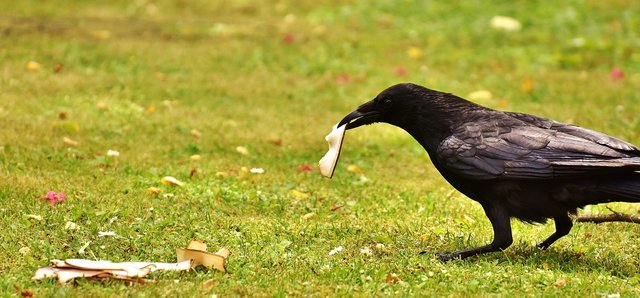Animal Bites Presented by the Society for Animal Consciousness

Consciousness is indeed a pivotal player in the lives of living beings and yet it has not been scientifically defined and continues to elude us. Our understanding of consciousness is relegated to the understanding of what we call the I and its physical correlates have been chased for decades. Neurological substrates are the methodological mainstay of consciousness investigation, resulting in little scientific progress. Indeed, although the 2012 Cambridge Declaration stated that all animals have consciousness, scientifically speaking this topic is still taboo! But what we are learning about the natural world and it's species is trending towards the understanding that animals show levels of consciousness. They have their own internal reality based on their environment, instinctual drives but more importantly they are making their own choices - thus showing self-agency. This idea of self-agency implies a choice is made. A choice about what is needed at that moment in time. This implies that there is an innate understanding of personal need. What is unclear is how to scientifically quantify the basis of this need thus reducing it to a simplified behavior or response to stimuli. But are animals truly just a robotic, binary system of instinctual drives in response to external stimuli?

A recent captive study of Raven's showed that the birds chose who they cooperated with. Two ends of a rope needed to be pulled to retrieve a piece of cheese. If one end was pulled the cheese was unattainable. Without training the Raven's quickly worked together to get the prize. Interestingly, when some of the birds cheated and cooperated only to take the full prize for themselves the other birds refused to cooperate with these individuals and chose a sharing partner. This seemed to surprise scientists who believed this was only possible in humans and chimpanzees.
The question to ask is the categorization of consciousness by science. Indeed, it is not categorized at all because it is ill-defined. Rather science categorizes consciousness based on intelligence and cognition. Indeed, the idea of animal intelligence is often based on the passing of a test and comparing animals to humans. This does not show intelligence at all. It is a comparison between humans and animals that is biased towards the human mind, on our terms. It is based on captive experimentation that is wholly ungeneralizable to wild populations by default and the effects of captivity are not accounted for, including experimenter bias and human associations. This provides a skewed view of animal behavior and "species intelligence". But what does this have to do with consciousness?
As we mentioned before consciousness is not well understood and is completely shunned by many behavioral and cognitive scientists even today as it cannot be measured mechanistically. However, this example above shows the Raven's recognized that they were hard done by, they recognized that partnering with a cheater did not support them and they chose to ostracize that individual and work with an equitable one. Consciousness is often related to self-awareness - does this experiment show there is a level of self awareness in these Ravens? In the dungeons of so called hard science - not per se. The gold standard for understanding self awareness is whether animals can recognize themselves in the mirror. Is this really showing self awareness? In a study using Elephants the study was at first inconclusive but when a small change was made to the apparatus the Elephants immediately passed the test. Does this test conclusively demonstrate that animals are self-aware or not? Does it really show that animals do not have consciousness? At the very basic level consciousness can be viewed as being aware, not just self aware but having awareness. The above example shows that these Raven's indeed had an awareness of the situation and when they were being 'played' thus refusing to engage with that individual. It can be argued that this was food related therefore was just a behavioral response. If this was the case the Raven's would have continued to engage in partnership with the cheating individuals ad nauseam. But they did not. Additionally, this behavior was not trained. It also suggests that not only was a cheater recognized, they were ostracized for an equitable partner. These choices were made unequivocally. Self-gain at the other's expense was shunned.
Consciousness suggests that we have our own opinions, tastes and feelings. These Ravens clearly made a choice about their welfare based on the choice of conspecifics behaviors. Of course it does not give us unequivocal scientific confirmation of consciousness but it highlights the real possibility of animal consciousness.
References
Jorg J. M. Massen, Caroline Ritter, Thomas Bugnyar. Tolerance and reward equity predict cooperation in ravens (Corvus corax). Scientific Reports, 2015; 5: 15021 DOI: 10.1038/srep15021
This post has received a 12.82 % upvote from @booster thanks to: @danlupi.
Downvoting a post can decrease pending rewards and make it less visible. Common reasons:
Submit
This wonderful post has received a bellyrub 5.91 % upvote from @bellyrub.
Downvoting a post can decrease pending rewards and make it less visible. Common reasons:
Submit
Hola! Nice post!
Downvoting a post can decrease pending rewards and make it less visible. Common reasons:
Submit
Hola! Gracias!
Downvoting a post can decrease pending rewards and make it less visible. Common reasons:
Submit